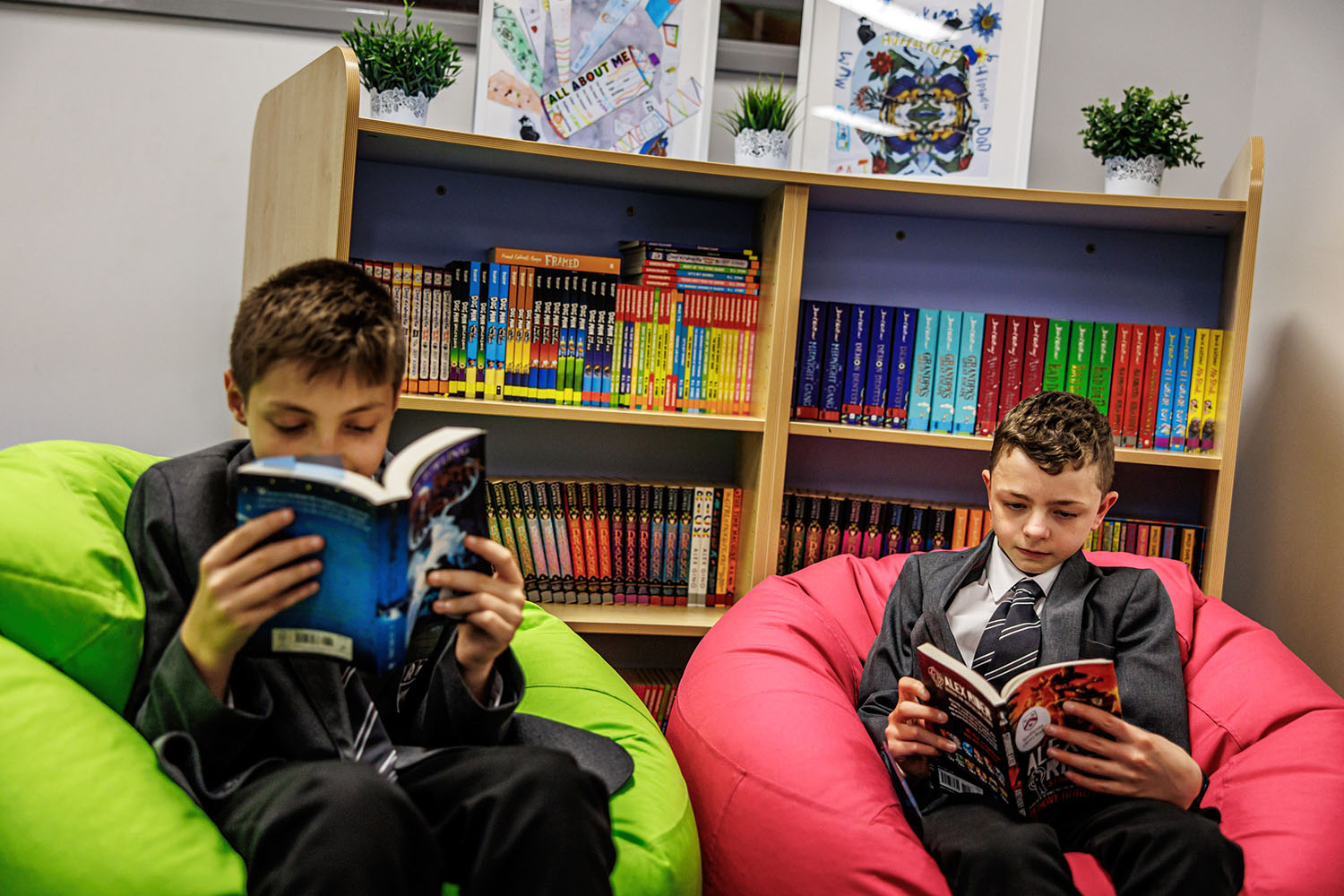In some parts of England, children are facing a seven-year wait for an autism diagnosis, compounding their problems at school and increasing emotional difficulties. Now, a ground-breaking project is sending specialist teams directly into primary schools, cross-checking government data to identify the pupils most at risk and delivering extra support within weeks.
The Born in Bradford study has been tracking 13,800 children born at the Bradford Royal Infirmary between March 2007 and December 2010. Using datasets from across the public sector it comes up with innovative solutions to tricky social problems.
The researchers analysed data about children who had autism diagnosed by the NHS at the age of 11 and discovered that many of the traits were already apparent in the information collected routinely by schools in reception.
They found they could predict with remarkable accuracy which children would later receive an autism diagnosis on the basis of the teacher’s assessment at the age of six. Pupils with a low score on what is known as the Early Years Foundation Stage Profile – an evaluation carried out on all five-year-olds across England – were 50 times more likely to eventually be diagnosed with autism.
The team then looked at the current cohort of five-year-olds, using the same metrics to identify those at risk of having additional needs. These children were formally assessed at their school rather than in a hospital. Almost all had a neurodivergent condition meaning support could be put in place immediately before difficulties escalated.
The programme, which has already been successfully piloted in 10 primary schools, is being rolled out across Bradford and could eventually be adopted around England.
Mark Mon-Williams, chair of cognitive psychology at Leeds University and deputy chair of the Department for Education’s science advisory council, who helps lead the Born in Bradford study, says a mindset change is required to create a more “inclusive” education system. He says: “There are a lot of very straightforward approaches that a school can take which make the difference between a child feeling they don’t belong and ultimately just disengaging from the whole education system or feeling included and achieving. All the evidence says that the earlier you can get in and provide the support, the better the outcomes.”
Reform of special educational needs and disabilities (Send) provision is also gearing up to be the next big political battle for the government. Bridget Phillipson, the education secretary, wants to drive through changes that would allow more Send pupils to be taught in mainstream schools. She is planning to introduce additional training for teachers and more specialist units for those pupils within mainstream schools.
A greater priority will be put on early intervention. The new Best Start family centres will all have a trained Send specialist.
But Phillipson has failed to guarantee that parents will continue to have the same legally enforceable rights to ensure their children get the help they need. There could be changes to education, health and care plans (EHCPs) that guarantee additional funding and extra support for Send pupils. Parents could also lose the right to choose a particular school with special provisions for their child.
Newsletters
Choose the newsletters you want to receive
View more
For information about how The Observer protects your data, read our Privacy Policy
Since 2015 the number of young people with an EHCP has more than doubled. The cost of Send provision has reached £12bn a year, up from £8bn in 2021-2.
Councils are spending more than £1bn a year on taxis to transport Send pupils to and from special schools. Many have accumulated multi-billion pound deficits.
There is a postcode lottery of provision and the system is overly complex, bureaucratic and adversarial.
Katie Ghose, chief executive of the charity Kids and vice-chair of the Disabled Children’s Partnership, says: “Everyone agrees the Send system is broken and needs to change.” But she adds: “The government should be honest about the lessons from the welfare reforms which left thousands of people in fear of poverty instead of seeing practical pathways to jobs they could do.”
Senior Labour figures are warning that the plan risks becoming “welfare mark two”, with dozens of MPs prepared to rebel against what they see as further Treasury-driven cost-cutting measures.
The National Autistic Society has warned that legal rights for children who need extra support must be retained.
A report from the Centre for Young Lives, to be published this week, found that growing numbers of vulnerable children are not having their needs met. More than 1.7 million young people in England were identified as having special educational needs in 2023-4, up 34% since 2017-18. In the four years since the pandemic, there has been a 341% increase in the number of children waiting for an autism assessment.
Ministers are working hard to avoid another revolt on the scale of the welfare rebellion. This week Keir Starmer suspended four Labour MPs who voted against the planned cuts to disability benefits.
Phillipson is consulting widely with teachers, families and backbench MPs before publishing proposals as part of a schools white paper in the autumn.
One Department for Education source said lessons had been learned from the welfare revolt, adding: “We need to be clear that this is not about saving money, it’s about improving outcomes for children with special educational needs. I don’t think anyone looks at the current Send system and thinks it’s working.”
‘We need to be clear that this is not about saving money, it’s about improving outcomes for children with special educational needs’
‘We need to be clear that this is not about saving money, it’s about improving outcomes for children with special educational needs’
Department for Education source
But the issue has caused tension around Whitehall, with Downing Street worried about the political danger of pressing ahead with another controversial reform.
One senior educationalist says: “The mood music from the profession is we have to do this because what’s happening at the moment is not in the interests of children. Kids are sitting in taxis for two hours a day and getting terrible provision. Bridget Phillipson is holding firm. Meanwhile No 10 is wobbling incredibly because they think they won’t get it through the backbenches.”
In January, almost 640,000 children in England had an EHCP, 11% higher than the previous year and the equivalent of almost an entire school year cohort across the country.
The rise follows a new legal framework, introduced in 2014, which means that schools are now only guaranteed top-up funding for children with EHCPs. Parents were also given greater choice over their child’s education, including the right to request a specific special school. Independent schools – some charging more than £130,000 a year – were included and so private equity companies moved in.
One of the largest private providers of special educational provision – Witherslack Group, owned by Abu Dhabi’s sovereign wealth fund, trebled its operating profits between 2019 and 2023 to £36m.
Meanwhile the accountability measures for schools focus almost entirely on academic attainment, creating an incentive to remove children who might not do well in exams.
Pupils with special educational needs are more than three times more likely to be suspended and five times more likely to be permanently excluded. They are also more likely to end up in the criminal justice system. About half of prisoners have some kind of neurodiversity.
Alex Russell, chief executive of the Bourne Education Trust, says there is a moral and financial imperative to improve provision for Send pupils within mainstream schools. Three of his schools have “special school satellites” and a fourth is now being created for children with severe learning difficulties.
Pupils with additional needs spend some of their time in the specialist unit, but can also access many elements of mainstream education, creating more flexibility.
“It works really well and is totally inclusive,” he says. “There are children who need to attend special schools but I’m also realistic enough to understand that the cost of special educational needs provision is simply not sustainable.”
He says technology is an “absolute game changer” for these pupils, adding; “A teaching assistant can take the lesson that’s been produced by the teacher and interpret or manipulate that lesson using artificial intelligence so it’s relevant to the reading age or learning style of the individual they are supporting.”
At the moment, parents say the education system too often sees Send pupils as a problem to be managed rather than recognising their unique talents. Tom Rees, chief of Ormiston Academies Trust, who is leading the government review of Send provision, has a son, Freddie, with Down’s Syndrome. He has described how the current system makes parents feel that they should be looking to create a “better version” of their children rather than accepting and celebrating them as they are.
The missed potential is huge. Only three in 10 autistic people of working age are in employment. Yet many highly successful individuals with a neurodivergent condition see their differently wired brain as an advantage. The entrepreneur Richard Branson describes dyslexia as his “superpower”.
Peter Kyle, the technology secretary, is so severely dyslexic that he has a reading age of eight but he still got to the cabinet. He thinks it gives him a different perspective on the world.
“I’ve always been good at reading other people’s emotions,” he says. “I learned at the beginning that I’m going to have to work harder than other people to do the same. The things that were holding me back have ultimately been the things that have given me the greatest success in life. I’ve been tested by systems, by people and by my own brain so much that I know precisely who I am.”
Photograph by Rafe Abrook Photography



